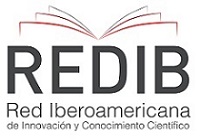National Public Assistance Service. A model for streghtening the first health care level
DOI:
https://doi.org/10.33734/diagnostico.v60i3.299Keywords:
Emergency medicine, delivery of health care, health systemsAbstract
The National Public Health Sevice was created in Perú in 1912 as National First Care Service with four sections. In the year 1945, its Central Care Post was opened as a Emergency Medical Surgical Service and First Aid. In 1951, especialized doctors and medical students were incorporated, as well as ambulances for home care. Peripheral posts were also open in many districts in Lima city, Callao and other states. The health care was proveded by care teams in 24 hours shifts, including Sundays. In 1980 the National Public Health Service was uninstalled and it was migrated to a centralized model with the headquarter at the José Casimiro Ulloa Emergency Hospital. The article arguments for the utility of recovering the model of the National Public Assistance System, understood as a functional component of the National Health System, which will strengthen the first level of health care.
Downloads
Metrics
References
Ugarte C. Historia de los servicios de emergencia de Lima y Callao. Acta Med Hered. 2000;11(3):97-106.
Fernández-Guerrero IM, Fernández-Cano A. Una tesis pionera en la Medicina de Urgencias y Emergencias española: “Alcance de la cirujía [sic] de urgencias en las casas de socorro” (1907). Emergencias 2013;25:409-414.
Salaverry O, Cárdenas-Rojas D. Establecimientos asistenciales del sector salud, Perú 2009. Rev Peru Med Exp Salud Pública. 2009;26(2):264-267.
Ministerio de Salud del Perú. Resolución Ministerial N° 546- 2011/MINSA. Lima: Ministerio de Salud; 2011.
WHO. The Seventy-Second World Health Assembly, Emergency care systems for universal health coverage: ensuring timely care for the acutely ill and injured. Geneva, 28 may 2019.
Cosavalente-Vidarte O, Zevallos L, Fasanando J, Cuba-Fuentes S. Proceso de transformación hacia las redes integradas de salud en el Perú. Rev Peru Med Exp Salud Pública. 2019;36(2):319-325. doi: http://dx.doi.org/10.17843/ rpmesp. 2019.362.4623.
Fortalecimiento del primer nivel de atención, en el marco del aseguramiento universal y descentralización en salud con énfasis en la atención primaria en salud renovada. Documento Técnico, Ministerio de Salud, Lima, Perú, 2010.
Vásquez-Alva R, Amado-Tineo J, Ramírez-Calderón F, Velásquez-Velásquez R, Huari-Pastrana R. Sobredemanda de atención médica en el servicio de emergencia de adultos de un hospital terciario, Lima, Perú. An Fac med. 2016;77(4):379- 385. http://dx.doi.org/10.15381/anales.v77i4.1265
Morales R. Aspectos Legal Emergencia. Diagnóstico 1983;12:47-52.
Morales R. Organización de Emergencias y Formación de Emergencistas. Diagnóstico 1984;13:213-215.
Sala Situacional Covid-19, Ministerio de Salud, Lima, Perú, 30 de abril de 2021.
Málaga G. Causas de admisión en el Hospital Cayetano Heredia durante la pandemia de COVID-19. Peru Med Exp Salud Pública. 2020;37(3):587-588. doi: https://doi.org/1017843/rpmesp. 2020.373.586
Lecky, et al. Harnessing inter-disciplinary collaboration to improve emergency care in low- and middle-income countries (LMICs): results of research prioritisation setting exercise. BMC Emergency Medicine. 2020;20:68. https://doi.org/10.1186/ s12873-020-00362-7.
Aluisio AR, Waheed S, Cameron P, Hess J, Jacob ST, Kissoon N, et al. Clinical emergency care research in low- income and middle-income countries: opportunities and challenges. BMJ Global Health 2019;4:e001289.
Reynolds TA, Stewart B, Drewett I, Salerno S, Sawe HR, Toroyan T, Mock C. The Impact of Trauma Care Systems in Low- and Middle-Income Countries. Annual Review of Public Health 2017;38(1):507-532. doi: 10.1146/annurev-publhealth- 032315-021412. Epub 2017 Jan 11.
Ministerio de Salud. Norma Técnica ° 113- MINSA/DGIE-V.01, Lima: MINSA, 2015.



























